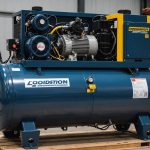Effective intercompany accounting ensures accurate financial consolidation and regulatory compliance. Adopting standardized processes, robust controls, and automation reduces errors and streamlines reconciliations. By implementing proven best practices, organizations can enhance transparency, minimize discrepancies, and maintain consistent records across subsidiaries—key factors for reliable reporting and informed decision-making.
The Critical Role of Intercompany Accounting in Multinational Businesses
Intercopany accounting best practices are essential for maintaining accurate and compliant financial reporting across regions. Effective intercompany reconciliation processes ensure transactions between subsidiaries—like sales, loans, or service fees—are properly recorded. Such precision supports robust consolidations and regulatory adherence, preventing errors that could lead to misstatements.
Topic to read : Key Strategies for Effective Business Leadership in the UK
Accurate transaction management directly influences financial transparency and reporting. Standardized data and automated reconciliation workflows reduce manual errors, speeding up closes and decreasing risk. Understanding different transaction types, including upstream, downstream, and lateral flows, helps companies track profits and losses accurately.
Implementing best practices like automated matching and dispute resolution workflows enhances overall control. Leveraging innovative solutions, such as those outlined on the Trintech page, supports organizations in optimizing intercopany accounting best practices and achieving faster, more accurate reporting.
Have you seen this : What Strategies Can UK Businesses Employ to Boost Employee Engagement?
Core Components of Effective Intercompany Accounting Practices
Efficient intercompany transaction management begins with clear process standardization. Standardizing how transactions are initiated and recorded is vital for effective intercompany reconciliation processes and accurate transfer pricing compliance. Centralizing these procedures creates a single source of truth, minimizing errors in intercompany journal entries and supporting timely intercompany eliminations during consolidation.
Adopting automation in accounting workflows transforms reconciliation. Automated reconciliation tools not only speed up intercompany invoice automation but also improve internal financial controls while reducing manual data entry errors. These systems provide robust audit trail maintenance, confirming every transaction meets multinational accounting standards and encourages better intercompany data accuracy throughout the cycle.
Centralized accounting systems enable comprehensive cross-entity accounting controls, giving organizations visibility into intercompany balance sheet reconciliation as well as audit preparedness. This centralization supports seamless accounting software integration, optimizing intercompany settlement and workflow automation.
Best practices for tax reporting, along with strong internal controls, align with ongoing governance in intercompany transactions. Routine reviews and updates of the intercompany policy framework foster consistency in accounting policies, supporting both compliance risk management and process standardization. Combining these approaches upgrades consolidation process improvements and financial close accuracy across all business units.
Implementing Automation Tools and Technologies
Intercompany invoice automation immediately reduces manual data entry errors and shortens reconciliation cycle time in intercompany reconciliation processes. AI-powered solutions, like HighRadius, provide smart matching of intercompany journal entries with real-time anomaly detection, ensuring that every transaction meets multinational accounting standards and supporting robust audit trail maintenance.
Integrated ERP systems play a vital role in consolidating intercompany transaction management and synchronizing data across centralized accounting systems. Cross-platform data synchronization improves intercompany data accuracy and allows for seamless intercompany eliminations. Well-integrated systems also automate intercompany balance sheet reconciliation, keeping cross-entity accounting controls intact while supporting compliance risk management and best practices for tax reporting, even for businesses managing multi-currency transactions.
Automated workflows are central to intercompany dispute resolution. By assigning clear responsibilities and leveraging automation in accounting workflows, companies can quickly resolve discrepancies, optimize intercompany settlement processes, and streamline intercompany profit and loss tracking. Automated reconciliation tools track transactions from initiation to financial close, aligning accounts payable and receivable across all entities. Utilizing these technologies improves internal financial controls, scalability of accounting operations, and fosters continuous improvement in intercompany workflow automation across all consolidation process improvements.
Ensuring Regulatory Compliance and Standardization
Multinational accounting standards require strict alignment across entities, making compliance more complex for global organizations. Success depends on embedding consistent intercompany reconciliation processes within centralized accounting systems, ensuring that every subsidiary adheres to both IFRS and local GAAP. Effective intercompany transaction management must address transfer pricing compliance and best practices for tax reporting to avoid legal risk and fines. Standardized intercompany journal entries, combined with robust audit trail maintenance, support transparency in transaction recording.
Formal intercompany agreements play a critical role in governing financial responsibilities and terms for each entity. Such agreements underpin audit trail maintenance and drive consistency in accounting policies, ensuring each process upholds internal financial controls and intercompany data accuracy.
Uniform cross-entity accounting controls mean that intercompany invoice automation and automated reconciliation tools can function smoothly, minimizing the potential for intercompany discrepancies. Intercompany eliminations are only reliable when intercompany balance sheet reconciliation is automated and governed by clear internal audit procedures. Streamlining accounting processes in this manner strengthens governance in intercompany transactions while scaling to meet the demands of multinational tax regulations and periodic review.
Continuous improvement in accounting involves leveraging technology and regular audit preparedness, supporting compliance risk management without unnecessary manual labor. This enables better compliance with global regulatory reporting and ensures sustainable, transparent financial management across the entire organization.










